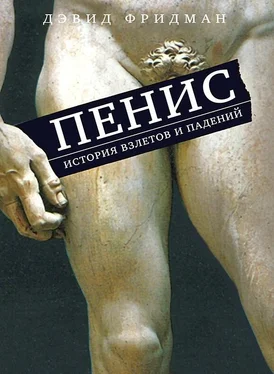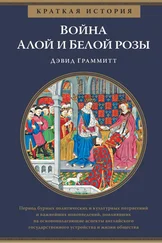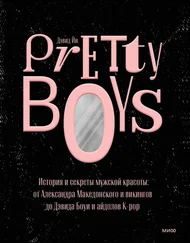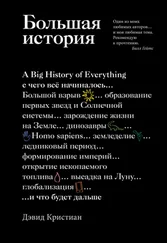C. 235. «У нас никогда не было»: Ibid., p. 261.
Глава четвертая
С. 237. «…поскольку самые буйные истерики»: Thomas Т. Lewis Proceedings of the Tenth Annual Meeting of the Western Society for French History (Lawrence, Kans.: University Press of Kansas, 1984), John F. Sweets, cd., p. 449–60.
С. 238. «Я был полностью захвачен этой беседой»: Sigmund Freud, On the History of the Psycho-Analytic Movement», Standard Edition of The Complete Psychological Works of Sigmund Freud, trans., James Strachey et al., vol. XIV, p. 15.
C. 238. Об употреблении Фрейдом кокаина; Ernst L Freud, ed., Letters of Sigmund Freud (New York: Basic Books, 1960), Letter 92, to Martha Bernays, p. 193–97.
C. 239. «B таких случаях, пояснил Хробак»: Feud, «On the History». p. 14–15.
C. 239. «Ни один из писателей двадцатого века»: Harold Bloom, Freud: The Greatest Modem Writer», New York Times Book Review, March 26, 1986, p. 1, 26–27.
C. 240. «Основы учения Фрейда о зависти к пенису»: Freud, Analysis Terminable and Interminable», quoted in «The Godfather of Psychoanalysis», Journal of the American Academy of Religion, June, 1999, p, 359.
C. 240. «Произведя такой переворот, Фрейд»: Cynthia Ozick, «The Buried Life», New Yorker, Oct.2, 2000, p. 117.
C. 240. «Психоанализ возвещает наступление»: Цит. no L J. Rather, «Disraeli, Freud and Conspiracy Theories», Journal of the History of Ideas 47 (1986): 111–131.
C. 240. «Вот что происходит»: Freud. «On the History», SE XIV, p. 22.
C. 242. «отец Фрейда угрожал ему тем же»: Marianne Kriull, Freud and His Father (New York, W. W Norton. 1986), p. 142–143.
C. 247. «Реальное последствие такого события»: Karen Homey, «The Dread of Woman», International Journal of Psycho-Analysis 13 (1932): 348–360.
C. 247. «Лишь две его ключевые концепции»: Stephen Kern, «The Prehistory of Freud’s Theory of Castration Anxiety», The Psychoanalytic Review 62 (1975): 309–14; Kern, «Freud and The Discovery of Childhood Sexuality». History of Childhood Quarterly 1 (1973): 117–111.
C. 248. О курении Фрейда писали Peter Gay, Freud: A Life for our Time (New York: Anchor, 1989); Patric J. Mahony, «Freuds World of Work», Freud: Conflict and Culture, ed., Michael S. Roth (New York: Knopf, 1998).
C. 251. «В имперском Риме»: William Johnson, «The Myth of Jewish Male Menses», Journal of Medical History 24 (1998): 273–295
C. 251. «B своем трактате «Рассуждения против иудеев»: слова Августина цитируются по Taylor, Castration, р. 164.
С. 251. «Другой отец католической церкви»: Piter Stanford, The Devil: A Biography (London, Heinemann, 1996), p. 122.
C. 252. «Сперва принеси жертву Сатане»: Joshua Trachtenberg, The Devil and the Jews (New York: Harper Torchbooks. 1943) p. 213; John F. Benton, ed., Self and Society in Medieval France: The Memoirs of Abbot Guibert of Nogent (New York: Harper Torchbooks, 1970), p. 114–115.
C. 252. «Некоторые даже верили»: Johnson «The Myth of Jewish Male Menses», p. 39.
C. 253. «В «Нюрнбергских хрониках», изданных в 1493 году»: James Shapiro, Shakespear and the Jews (New York: Columbia University Press, 1996), p. 114,
C. 254. «To, что обрезание нередко»: Roy S. Wolper, «Circumcision as Polemic in the Jew Bill of 1753», Eighteenth Century Life 7 (1982): 25–36.
C. 255. «Как только головка члена»: Montaigne. Complete Works (Stanford, Cal.: Stanford University Press, 1994), p. vii, 945–946.
C. 256. О дневнике Кафки: Sander L. Gilman, Freud, Race and Gender (Princeton, N. J.: Princeton University Press, 1993), p. 68. Gilman, «Jews and Mental Illness», Journal of the History of the Behavioral Science 20 (1984); 150–159.
C. 257. «В 1815 году Мортон случил»: Richard W, Burkhardt Jr., «Closing the Door on Lord Morton’s Mare», Studies in the History of Biology 3 (1979): 1–21; Marvin Carlson, «Ibsen, Strindberg and Telegony». Publications of the Modern Language Association 100 (1985): 774–782.
C. 257. О евреях: Frank Kingdon, «Race and Sex», The Encyclopedia of Sexual Behavior, vol.2, Albert Ellis and Albert Abarbanel, eds. (New York; Hawthorne Books, 1964), p. 899.
C. 258. Гилман об «универсализации»: Sander L. Gilman The Jew’s Body (New York; Routledge, 1991); Freud, Race, and Gender: The Case of Sigmund Freud (Baltimore Johns Hopkins University Press, 1993).
C. 259, Об эксцентричных идеях Флиса писали Frank Sulloway, Freud, Biologist of the Mind (Cambridge, Mass.; Harvard University Press, 1992); Walter A. Stewan, Psychoanalysis: The First Ten Years, 1888–1898 (London: George Allen & Unwin, 1969); Ernst Kris, «Wilhelm Fliess’s Scientific Interests», The Origins of Psycho-Analysis, Marie Bonaparte, Anna Freud, and Ernst Kris, eds., (New York: Basic Books, 1954), p. 3–13.
C. 260. «Фрейд просто «вычитывает в людях»»: Gay, Freud, р. 89.
с. 261. «Он отказался от него лишь когда»: Siewart, Psychoanalysis: The First Ten Years, p. 9.
C. 261. Bee цитаты из переписки Фрейда и Флиса взяты из Jeffrey Moussaieff Masson, ed.. The Complete Letters of Sigmund Freud to Wilhelm Fliess, 1877–1904 (Cambridge, Mass.: Belknap Press, 1985); and/ or The Origins of Psychoanalysis.
C. 264. «Первая встреча с Фрейдом»: David J. Lynn, «Sigmund Freud’s Psychoanalysis of Albert Hirst», Bulleting of Medicine 71 (1997): 69–93.
C. 264. «Дать психологическое объяснение истокам»: Gay, Freud, p. 121.
C. 265. «Так, описывая Винченцо Верцени»: Richard von Knft-Enbing, Psychopathia Sexualis, trans., Franklin S. Klaf (New Yourk: Stein & Day, 1965), p. 63–65.
C. 266. «И, подобно археологу»: Ernest S. Wolf, «Saxa Loquuntur», The Psychoanalytic Study of the Child 26 (1971): 535–554.
C. 267. О самоанализе Фрейда: Ernest Jones, The Life and Work of Sigmund Freud (New York: Basic Books, 1953–57), vol. I, p. 318–27; Didier Anzieu, Freud’s Self-Analysis (Madison, Conn.: International Universities Press, 1986); Masson, The Complete Letters of Sigmund Freud; Stewart, Psychoanalysis: The First Ten Years; Alexander Grinstein, On Sigmund Freud’s Dreams (Detroit: Wayne State University Press, 1968); Gay, Freud: A Life for Our Time, p. 87–103; Michael Roth, ed., Freud: Conflict and Culture; John M.Hartke, «Castrating the Phallic Mother», The Psychoanalytic Review 81 (1994): 641–57; Arnold Bernstein, «Freud and Oedipus», The Psychoanalytic Review 63 (1976): 393–407; Lawrence Birken, — From Seduction Theory to Oedipus Complex», New German Critique 43 (1988): 83–96; Roy C. Calogeras and Fabian X. Schupper, «Origins and Early Formulations of the Oedipus Complex», Journal of the American Psychoanalytic Association 20 (1972): 751–775.
C. 268. «Его самоанализ, — писал одни психоаналитик»: Harry Trosman, «Freud’s Self-Analysis and his Scientific Ideas», in Freud, the Fusion of Science and Humanism. John E. Gedo and George H. Pollock, eds., (New York: International Universities Press, 1976).
Читать дальше







![Дэвид Кристиан - Большая история [С чего все начиналось и что будет дальше]](/books/405580/devid-kristian-bolshaya-istoriya-s-chego-vse-nachinal-thumb.webp)



